Dirk Nowitzki (Part 3)
Dirk Nowitzki (Part 3)
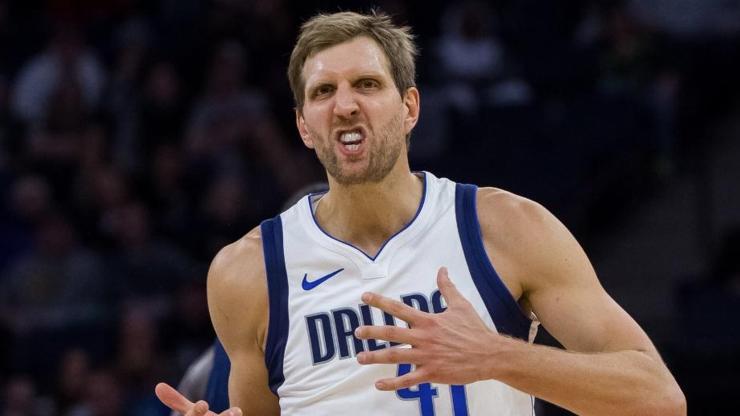
Before the 2002–03 NBA season, Don Nelson and Mark Cuban implemented a stronger emphasis on defense, adopting a zone defense anchored by formidable shot-blockers Raef LaFrentz and Shawn Bradley. The Mavericks got off to a scorching start, winning their first fourteen games, with Finley, Nash, and Nowitzki earning "Western Conference Players of the Month" honors for November 2002.
During the season, Nowitzki continued to elevate his game, posting impressive averages of 25.1 points, 9.9 rebounds, and 3.0 assists per game. His stellar performance played a pivotal role in leading the Mavericks to a franchise-best 60–22 record, securing the third seed in the playoffs. In the 2003 NBA Playoffs, the Mavericks faced the Portland Trail Blazers in the first round, winning the first three games but then dropping the next three. In a decisive Game 7, Nowitzki came up clutch, hitting a crucial three-pointer to secure a 107–95 victory and advance to the next round.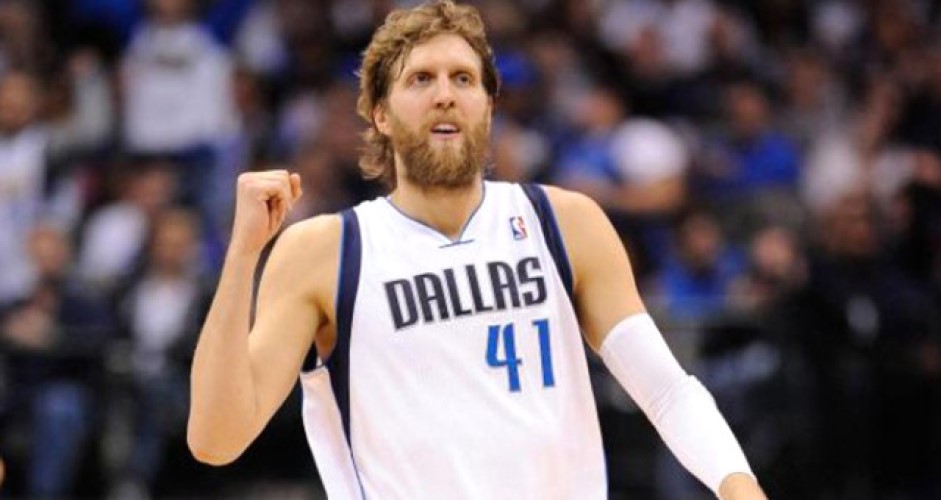
Facing the Kings in the second round, the series went the distance, with Nowitzki delivering a memorable performance in Game 7. He scored 30 points, grabbed 19 rebounds, and played stellar defense to lead the Mavericks to a series-clinching 112–99 win. However, their journey was marred by an injury setback in the Western Conference Finals against the Spurs. In Game 3, Nowitzki collided with Spurs guard Manu Ginóbili, injuring his knee and forcing him out of the series. Without their top scorer, the Mavericks ultimately fell to the Spurs in six games, ending their playoff run. Despite the disappointment, Nowitzki's resilience and leadership throughout the postseason earned him widespread respect and admiration.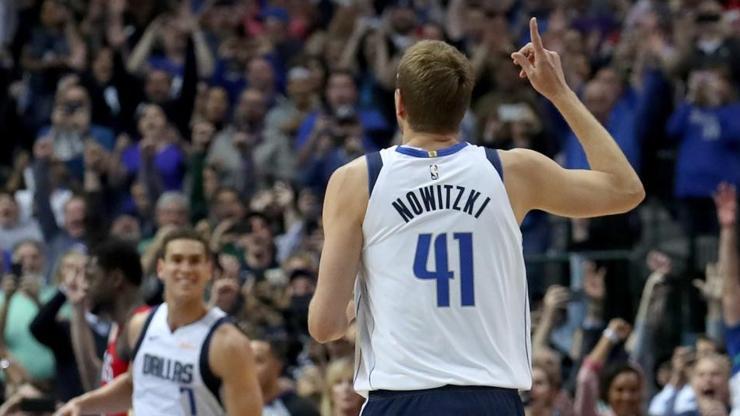
Following the trade of starting center Raef LaFrentz to Boston for forward Antoine Walker, Don Nelson made the strategic decision to move Nowitzki to the center position in the starting lineup. To adapt to this more physically demanding role, Nowitzki underwent a rigorous offseason training regimen, adding 20 pounds of muscle to his frame while sacrificing some agility. He shifted his focus towards defense, prioritizing it over scoring.
As a result of these adjustments, Nowitzki's statistical averages experienced a slight decline for the first time in his career, with him posting averages of 21.8 points, 8.7 rebounds, and 2.7 assists per game. Despite this, he remained the Mavericks' leader in scoring, rebounding, steals (1.2 spg), and blocks (1.35 bpg). His performances earned him nominations for the All-Star Game and a spot on the All-NBA Third Team.
During the regular season, the Mavericks compiled a respectable 52–30 record. In the playoffs, they faced off once again against their familiar rivals, the Sacramento Kings. However, the Mavericks were unable to advance, ultimately being eliminated by the Kings in five games, marking the end of their postseason journey.
:format(jpeg)/cdn.vox-cdn.com/uploads/chorus_image/image/8183963/gyi0065139804.0.jpg)
Before the 2004–05 NBA season, the Dallas Mavericks underwent significant changes. They acquired center Erick Dampier from the Golden State Warriors in an eight-player trade, aiming to bolster their frontcourt presence. Additionally, Nowitzki's close friend and fellow international teammate Steve Nash departed from Dallas, opting to join the Phoenix Suns as a free agent. Nash went on to achieve great success with the Suns, winning two Most Valuable Player awards during his tenure.
In the absence of Nash, Nowitzki elevated his game to new heights during the 2004–05 season. He achieved a career-high scoring average of 26.1 points per game, while also averaging 9.7 rebounds, 1.5 blocks, and 3.1 assists per game, all of which were career-best numbers. One of the standout moments of the season came on December 2, 2004, when Nowitzki scored a career-best 53 points in an overtime victory against the Houston Rockets.
For his stellar performance throughout the season, Nowitzki earned his first selection to the All-NBA First Team. Additionally, he finished third in the league's MVP voting, trailing behind Nash and Shaquille O'Neal./origin-imgresizer.eurosport.com/2013/04/07/985174-19356585-2560-1440.jpg)
Despite Nowitzki's individual success, the Mavericks faced challenges in the 2005 NBA Playoffs. In the first round, they squared off against the Houston Rockets, led by scoring champion Tracy McGrady and towering center Yao Ming. After falling behind 2–0 in the series, the Mavericks rallied to win three consecutive games before ultimately securing the series victory in Game 7, despite Nowitzki struggling with his shooting.
In the Western Conference Semifinals, the Mavericks faced Nash and the Phoenix Suns. The series was tightly contested, with the teams splitting the first four games. However, the Suns emerged victorious in the final two games, winning the series. Nowitzki faced difficulties in Game 6, scoring 28 points but struggling with his shooting efficiency, particularly in overtime, where he missed all five of his shot attempts.
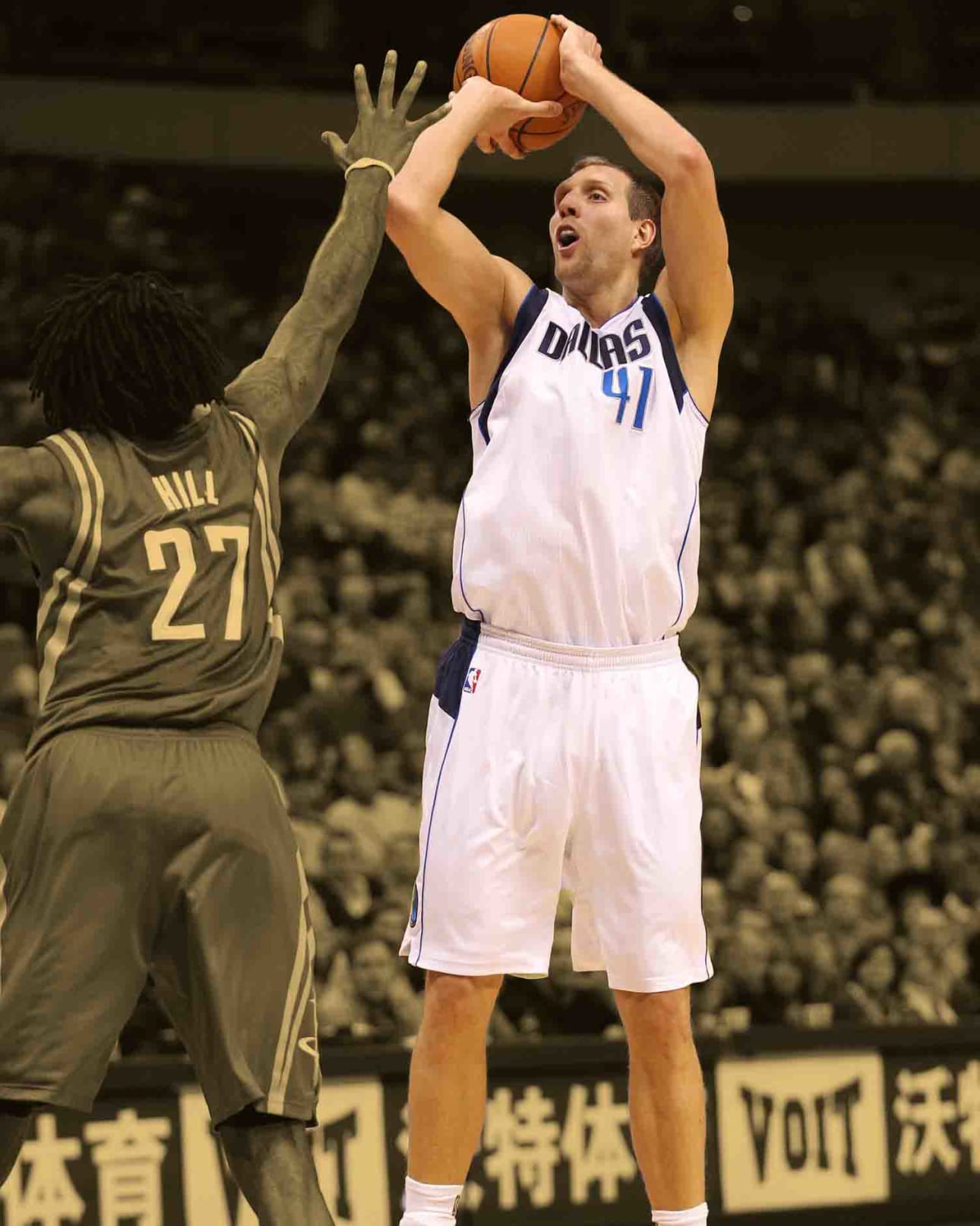
Before the 2005–06 NBA season, the Dallas Mavericks underwent significant changes with the departure of veteran captain Michael Finley, leaving Dirk Nowitzki as the last remaining player from the Mavericks' "Big Three" era alongside Steve Nash and Finley himself. Nowitzki continued to showcase his prowess on the court during the season, averaging 26.6 points, 9.0 rebounds, and 2.8 assists. His scoring average of 26.6 points marked the highest ever by a European player, further solidifying his status as one of the premier talents in the league.
Throughout the season, Nowitzki demonstrated remarkable efficiency, setting personal season records in field goals, three-point shots, and free throws. He further showcased his versatility during the 2006 All-Star Weekend in Houston by winning the Three-Point Contest, defeating notable competitors such as Ray Allen and Gilbert Arenas.
Nowitzki's stellar performance helped lead the Mavericks to a 60-win season, securing the third-best record in the league. He once again finished third in the league's MVP voting, behind Nash and LeBron James, and was selected to the All-NBA First Team.
In the playoffs, Nowitzki continued to shine, averaging 27.0 points, 11.7 rebounds, and 2.9 assists per game. The Mavericks swept the Memphis Grizzlies in the opening round and defeated the San Antonio Spurs in a thrilling seven-game series in the Western Conference Semifinals. Nowitzki's clutch performances, including a pivotal three-point play in Game 7 against the Spurs, helped propel the Mavericks to victory.
Advancing to the Western Conference Finals, the Mavericks faced the Phoenix Suns once again. Nowitzki delivered a historic 50-point performance in Game 5 to lead the Mavericks to victory and ultimately clinch the series in six games.
Facing the Miami Heat in the 2006 NBA Finals, the Mavericks took an early 2–0 series lead but ultimately lost the series in six games. Nowitzki faced criticism for his performance in the latter part of the series, as his shooting efficiency declined. Despite the disappointment of the Finals loss, Nowitzki's exceptional play throughout the season and playoffs earned him praise from analysts, with ESPN columnist Bill Simmons comparing his performance to that of legendary forward Larry Bird.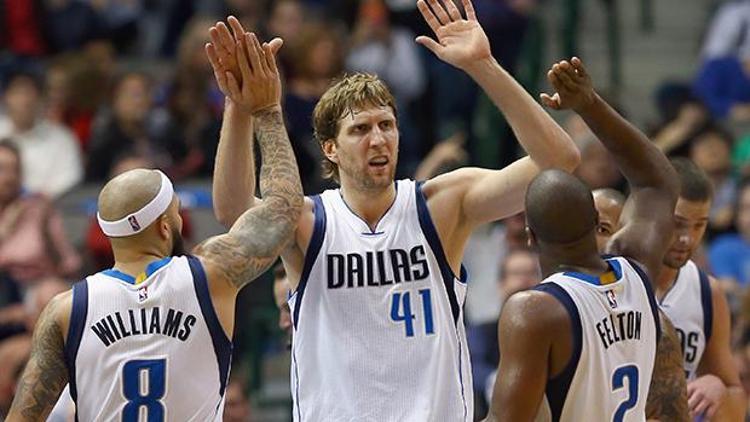
References
- Sauer, 39–40
- ^ Sauer, 42–43
- ^ Sauer, 47
- ^ "1998 NBA Draft Flashback: Bucks trade Dirk to Mavs for Tractor Traylor, Mavs also trade for Steve Nash, many takes ensue". January 5, 2017. Archived from the original on February 5, 2019. Retrieved January 26, 2019.
- ^ Sauer, 49–51
- ^ DJK Basketball: Wir über uns Archived November 24, 2007, at the Wayback Machine, djk-wuerzburg-basketball.de. Retrieved March 9, 2008
- ^ Sauer, 54–59
- ^ Sauer, 59–65
- Dirk Nowitzki Statistics Archived October 10, 2021, at the Wayback Machine, Basketball-reference.com. Retrieved January 6, 2008
- ^ Sauer, 67
- ^ Sauer, 74–75
- a b Sauer, 77
- ^ Cova, Ernesto (May 28, 2021). "NBA 'Big Three': Every team's best trio since 2000". bolavip.com. Archived from the original on November 21, 2020. Retrieved July 29, 2021.
- ^ 2000–01 Standings Archived April 11, 2016, at the Wayback Machine, National Basketball Association/history. Retrieved January 7, 2008
- ^ Playoff Appearances Archived January 14, 2008, at the Wayback Machine, Nbahoopsonline.com. Retrieved January 7, 2008









































